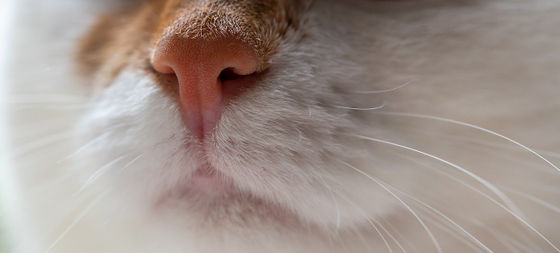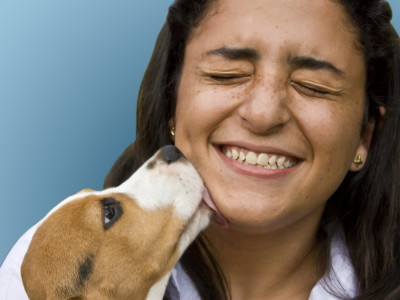It has been confirmed that cats are infected with the new coronavirus from cats, there is no possibility of becoming a 'quiet intermediate host'

An experiment in which new coronavirus (SARS-CoV-2) was administered to cats confirmed that SARS-CoV-2 infects cats. Moreover, in this study, it was also observed that SARS-CoV-2 was excreted from the cat's nose, so the households and facilities that keep cats are required to be more careful than ever.
Transmission of SARS-CoV-2 in Domestic Cats | NEJM
New coronavirus spreads among cats | Institute of Medical Science, University of Tokyo
https://www.ims.u-tokyo.ac.jp/imsut/jp/about/press/page_00004.html
Study confirms cats can become infected with and may transmit COVID-19 to other cats
https://news.wisc.edu/study-confirms-cats-can-become-infected-with-and-may-transmit-covid-19-to-other-cats/
Previous studies have shown that human SARS-CoV-2 is also highly likely to infect cats, and in Belgium, it has actually been reported in owners of new coronavirus infections (COVID-19). It has been reported that cats were infected with SARS-CoV-2 .
In the United States, it has been reported that tigers in zoos were infected with SARS-CoV-2 via breeders and showed symptoms such as coughing and loss of appetite.
Infection with new coronavirus confirmed in tigers at zoo, infection from asymptomatic caregivers-GIGAZINE

Therefore, a research team led by Professor Yoshihiro Kawaoka , a virologist and veterinary doctor at the University of Tokyo, investigated the effect of SARS-CoV-2 on cats by studying SARS-CoV-2 isolated from human COVID-19 patients. An experiment was conducted in which was administered to 3 cats.
The day after the administration of SARS-CoV-2, the research team inserted a cotton swab into the cat's nose and collected and analyzed the sample, confirming that SARS-CoV-2 was excreted from the two cats. It was Eventually, within 3 days, all 3 cats started to emit SARS-CoV-2.
Furthermore, from the day after the SARS-CoV-2 was administered to the first 3 animals, the research team put the uncatalyzed SARS-CoV-2 cats in the cage that contained 3 cats each, I checked if SARS-CoV-2 could be infected.
As a result, it was confirmed that SARS-CoV-2 was excreted from the noses of all 6 cats within 6 days. Professor Kawaoka notes in the material that presents these results, 'SARS-CoV-2 was found to frequently increase in the respiratory system of cats, and further, contact infection between cats was found.'
Six cats continued to excrete SARS-CoV-2 for up to 6 days, but none of them showed symptoms of COVID-19, and eventually all cats excreted SARS-CoV-2. It is said that it has stopped doing it. In addition, SARS-CoV-2 was excreted from the nose, but SARS-CoV-2 was not detected from the rectum.

Professor Kawaoka said of this result, 'It was a great discovery for us that cats did not show COVID-19 symptoms.' In addition to Professor Kawaoka, Professor Kawaoka is also involved in the development of the COVID-19 vaccine called ' CoroFlu .'
In a paper published in the New England Journal of Medicine in the American medical journal, the research team said that 'cats do not show symptoms that owners can recognize that they are infected with SARS-CoV-2 Because of this, cats may be a 'quiet intermediate host' for SARS-CoV-2. '
In this experiment, it was not confirmed whether SARS-CoV-2 infected with cats could infect humans, but SARS-CoV-2 can be diffused by aerosol discharged from respiratory organs of infected people. I know.
The maximum distance that aerosols can carry the new coronavirus is about 4 meters, and it is possible that the virus will spread from the `` back of shoes ''-GIGAZINE

On the other hand, no evidence or research results showing that SARS-CoV-2 is easily transmitted from cats to humans has been reported so far, and there are cases where cats caused COVID-19 infected people. I don't.
Therefore, Professor Kawaoka is particularly concerned about animal welfare. In fact, in China the case that pets such as cats from concerns about the COVID-19 is killed by, for example, dumped from the veranda has one after another .
`` This study is something people should keep in mind. People should be concerned about their pets being infected as well. '
Professor Kawaoka and Halfman advise people with COVID-19 to avoid contact with cats. We also recommended that cat owners keep cats indoors to limit contact with outsiders and animals.
The views on pets and COVID-19 announced by the Ministry of Health, Labor and Welfare and the Japan Veterinary Medical Association can be seen from the following.
Q & A for raising animals | Ministry of Health, Labor and Welfare
https://www.mhlw.go.jp/stf/seisakunitsuite/bunya/kenkou_iryou/doubutsu_qa__00001.html
Pets and New Coronavirus Infections | Japan Veterinary Association
(PDF file) https://seo.lin.gr.jp/nichiju/suf/topics/2020/20200502_02.pdf
Related Posts:







